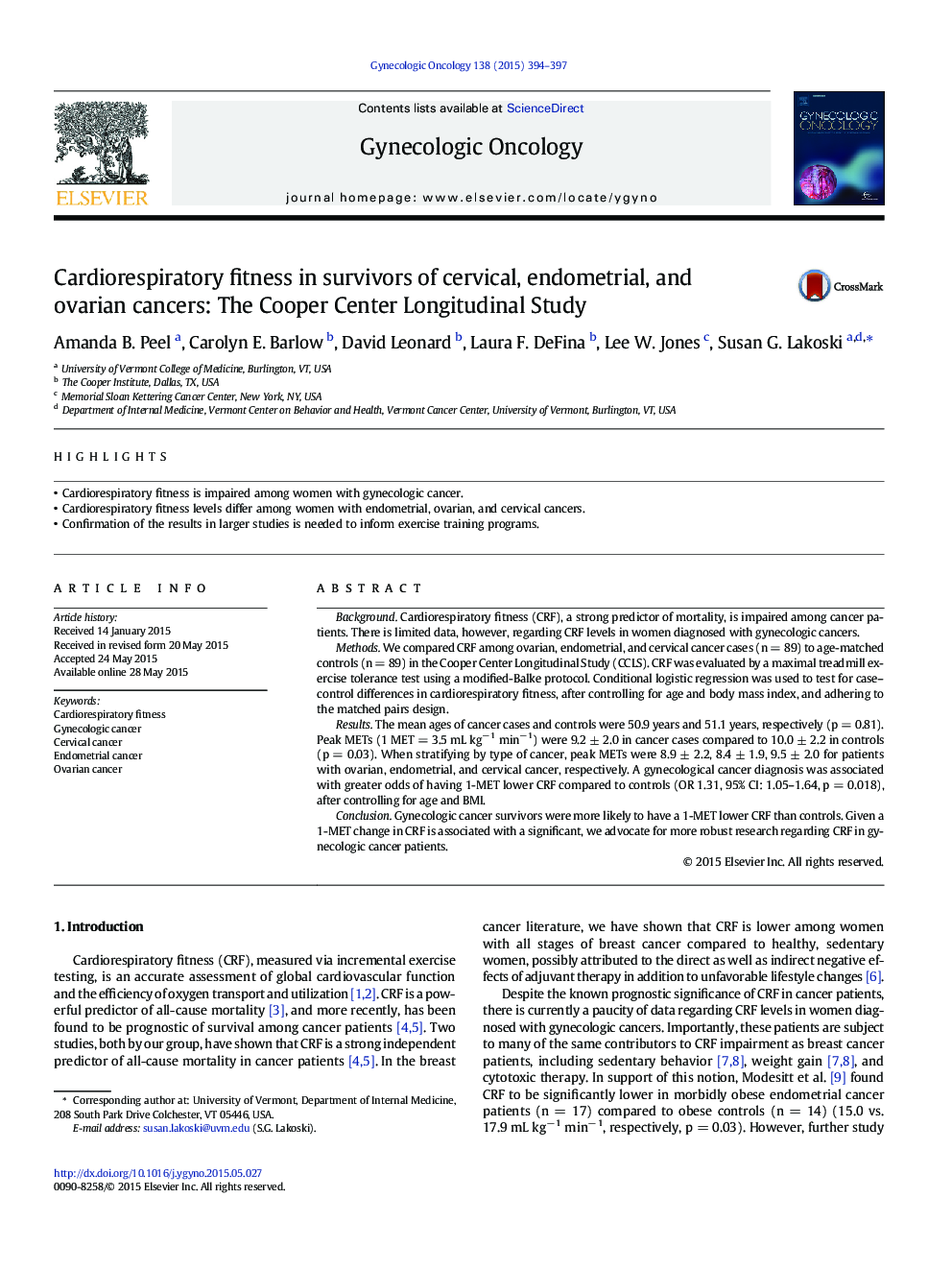| Article ID | Journal | Published Year | Pages | File Type |
|---|---|---|---|---|
| 3943166 | Gynecologic Oncology | 2015 | 4 Pages |
•Cardiorespiratory fitness is impaired among women with gynecologic cancer.•Cardiorespiratory fitness levels differ among women with endometrial, ovarian, and cervical cancers.•Confirmation of the results in larger studies is needed to inform exercise training programs.
BackgroundCardiorespiratory fitness (CRF), a strong predictor of mortality, is impaired among cancer patients. There is limited data, however, regarding CRF levels in women diagnosed with gynecologic cancers.MethodsWe compared CRF among ovarian, endometrial, and cervical cancer cases (n = 89) to age-matched controls (n = 89) in the Cooper Center Longitudinal Study (CCLS). CRF was evaluated by a maximal treadmill exercise tolerance test using a modified-Balke protocol. Conditional logistic regression was used to test for case–control differences in cardiorespiratory fitness, after controlling for age and body mass index, and adhering to the matched pairs design.ResultsThe mean ages of cancer cases and controls were 50.9 years and 51.1 years, respectively (p = 0.81). Peak METs (1 MET = 3.5 mL kg− 1 min− 1) were 9.2 ± 2.0 in cancer cases compared to 10.0 ± 2.2 in controls (p = 0.03). When stratifying by type of cancer, peak METs were 8.9 ± 2.2, 8.4 ± 1.9, 9.5 ± 2.0 for patients with ovarian, endometrial, and cervical cancer, respectively. A gynecological cancer diagnosis was associated with greater odds of having 1-MET lower CRF compared to controls (OR 1.31, 95% CI: 1.05–1.64, p = 0.018), after controlling for age and BMI.ConclusionGynecologic cancer survivors were more likely to have a 1-MET lower CRF than controls. Given a 1-MET change in CRF is associated with a significant, we advocate for more robust research regarding CRF in gynecologic cancer patients.
